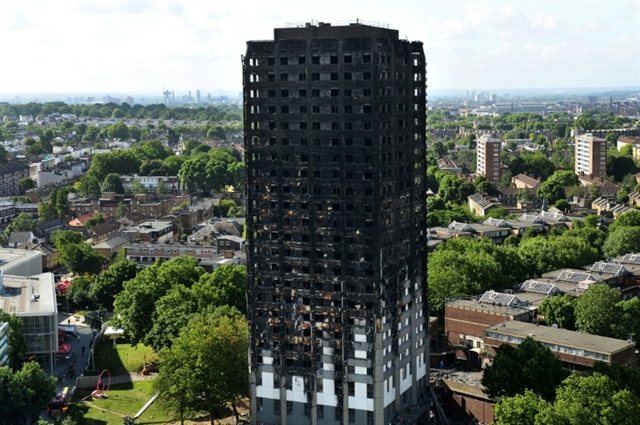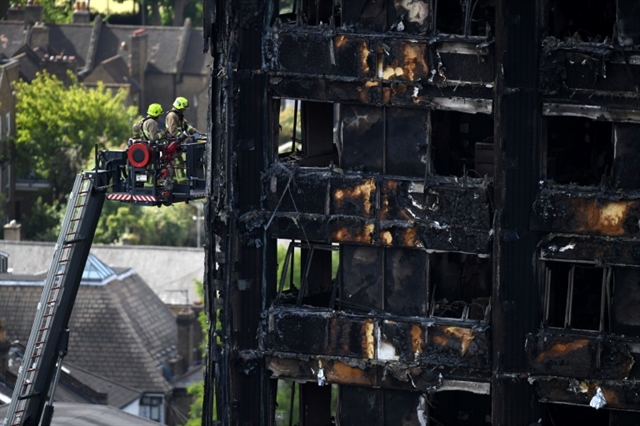 World
World


|
| The assessment into the Grenfell Tower fire is due to be published on Wednesday and indicated fewer people would have died had London Fire Brigade been better prepared. — AFP Photo |
LONDON — The emergency response to a 2017 high-rise fire that killed 71 people in London had "serious shortcomings", British media said on Tuesday, quoting an official report into the tragedy.
The long-awaited assessment into the Grenfell Tower fire is due to be published on Wednesday and indicated fewer people would have died had London Fire Brigade been better prepared.
The June 14, 2017 inferno at the 24-storey residential block in west London was Britain's deadliest domestic fire since World War II and prompted widespread outrage.
Several media organisations said the report says the fire service's readiness for such a blaze was "gravely inadequate" and that its response suffered from "systemic" failures.
It also accused LFB commissioner Dany Cotton of "remarkable insensitivity" after she told the inquiry she would not have done anything differently on the night.
"I identify a number of serious shortcomings in the response of the LFB, both in the operation of the control room and on the incident ground," wrote inquiry head Martin Moore-Bick.
"It is right to recognise that those shortcomings were for the most part systemic in nature," he stated, according to the domestic Press Association news agency.
A public inquiry into the fire began in May 2018, led by retired High Court judge Moore-Bick, and is expected to take evidence in two phases.
Prime Minister Boris Johnson, who on Wednesday will give the government's response in parliament to the report's release, said he hoped it would bring "some measure of comfort" to victims' families.
"I am very much aware that no report, no words, no apology will ever make good the loss suffered and trauma experienced," he added in a statement.
"Yet I hope it strengthens their faith in the inquiry's desire to determine the facts of the fire."
'Compelling evidence'
Findings from the first stage of the inquiry focused on assessing what happened on the night of the fire is summarised in the 1,000-page document, and includes a number of recommendations.

|
| The June 2017 inferno at the 24-storey residential block in west London was Britain's deadliest domestic fire since World War II. — AFP Photo |
It reportedly confirms the blaze started through a faulty fridge in the kitchen of a fourth-floor flat and quickly engulfed the building due to flammable cladding installed on its facade as part of a refurbishment.
The report states the combustible aluminium composite material (ACM) cladding with polyethylene cores acted as a "source of fuel" and was the "principal reason" the flames spread at such speed.
Moore-Bick is said to have noted that he intended to determine whether the building complied with regulations in the later stage of the probe but there was already "compelling evidence" the external walls did not.
Meanwhile, he ruled the LFB's "stay-put" strategy should have been lifted earlier, which would "likely to have resulted in fewer fatalities".
The fire service came under almost immediate scrutiny over its advice at the time for residents to remain in their flats, which was only lifted two hours after the blaze began.
"The best part of an hour was lost," the retired judge concluded.
The LFB has defended its actions, saying there had been "no obvious and safe alternative strategy".
Although Moore-Bick praised the bravery of individual firefighters, he said the brigade was not well prepared for such an event.
"The LFB's preparation and planning for a fire such as that at Grenfell Tower was gravely inadequate," he wrote. — AFP




